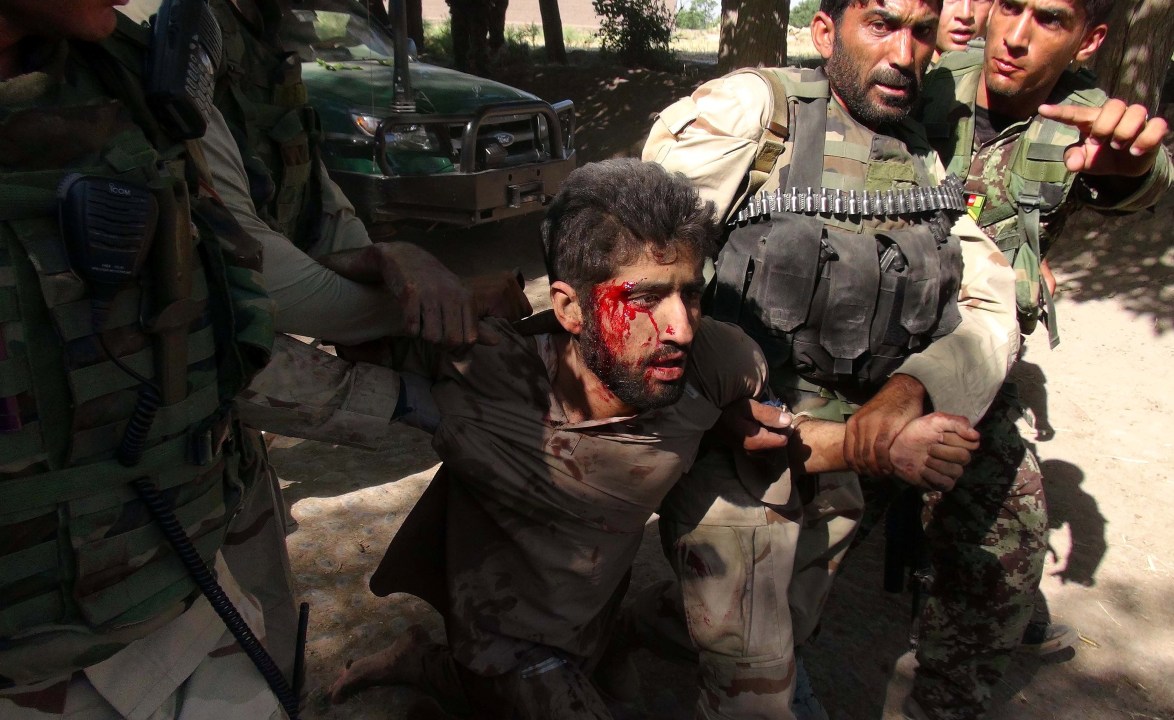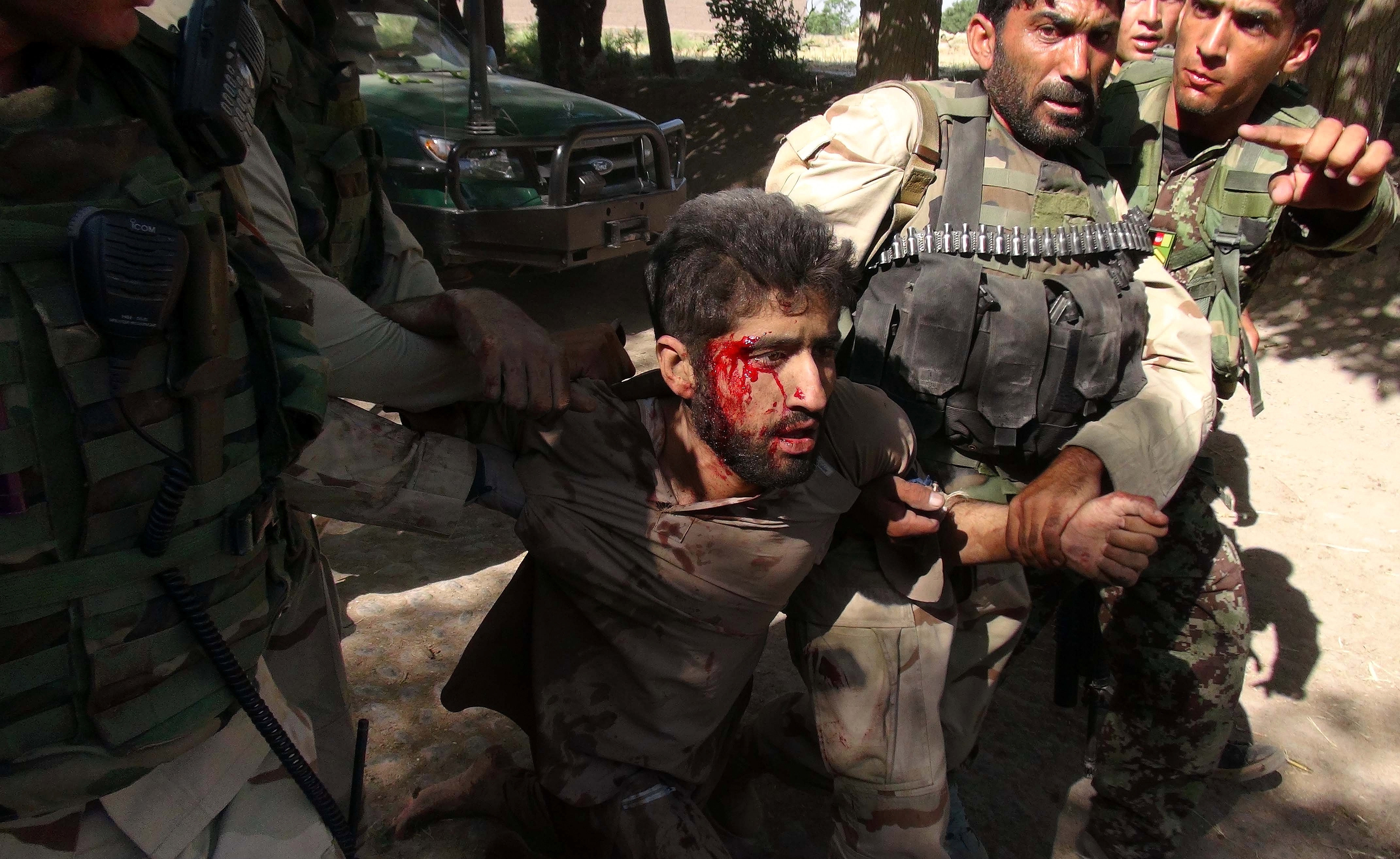It’s not just soldiers who risk their lives in Afghanistan. Anyone who enters the country’s judicial service becomes an assassination target. Only last week, six Afghan judges were killed by a suicide bomb outside Kabul’s Supreme Court. A Taleban spokesman said they had been ‘sentenced to death’ for playing an ‘important role’ in ‘legalising the infidels’. Such attacks have killed over 3,000 civilians in Afghanistan so far this year, according to the United Nations. Of these, some 600 were children.
Barack Obama’s administration invites us this week to welcome the prospect of peace talks between the Taleban and Hamid Karzai’s government as a sign of progress. It is hard to be optimistic when you consider how the Taleban still operates. Its murder rate is soaring; assassinations by insurgents are up 40 per cent so far this year. It has seen off the Americans and British, whose troops handed over control security to the under-equipped Afghan military on Tuesday. Next year, Allied troops will withdraw. The Taleban has found that violence works; if you persist with it long enough, you may bomb your way to the negotiating table.
It is difficult to recall that the Taleban- were once regarded as ‘good rebels’ deserving of western arms and support. The Taleban’s lineage can be traced to the Mujahideen, who were armed by the US to fight a Soviet-backed leader. Certainly, the argument went at the time, their ideals were not the same as those of the West, but arming them was a cheap way of influencing a foreign war without losing western lives or putting boots on the ground. It was effective, too — but in arming the so-called ‘good rebels’, we created a monster.
No one will envy David Cameron or Barack Obama having to decide what to do about Syria. It’s an appalling tragedy, and western leaders are damned if they do and damned if they don’t. Attack, and they will be accused of being war criminals. Stay out and they will labelled appeasers. Many of the Tories who advise David Cameron today are still haunted by the failure of the last Conservative government to stop the slaughter in Bosnia.
It is easy to see the attraction of a third way, avoiding direct involvement but supporting the preferred side with arms and other tactical support in the hope of achieving a better outcome. After all, it can be argued, was this not the approach which succeeded in removing Gaddafi from power in 2011, an event which led to elections rather than prolonged civil war? And were the same old voices not saying then that imposing a no-fly zone in Tripoli was absurd?
Cameron’s decisive action in Libya may well have averted a massacre, and it served as a reminder that Britain can shape world affairs for the better. But then there was a clear plan: to disarm a dictator, not to supply weaponry to fighters we don’t know, with the inevitable end of escalating the violence. None of the rebels in Libya had deployed chemical weapons, eaten body parts on camera, or vowed to wipe out other ethnic groups.
With the Libyan intervention, it was possible to see how the story would end. Even in Iraq and in Afghanistan, there was a clear plan for transition to democracy. In Syria, there is no such plan.
This week, the likelihood of intervention has grown stronger, without any explanation about what it would achieve. Arming the wrong rebels had devastating repercussions in Afghanistan. Are we really going to repeat the same mistake?
Top table
What is it with politicians and food? On Monday, David Cameron took a break from global leadership at the G8 summit to tweet a picture of the evening menu: crab, prawn and avocado salad, then roast beef with artichokes, followed by crumble (Dave’s favourite). Delicious! But what on earth was the point? Who did he think was waiting for news of his dinner?
Perhaps we should not blame Cameron. It’s a curious fact about modern reporting that no political event can be properly digested without a detail about what the statesmen have been eating or drinking. History is now written by the chefs.
Perhaps it began when Churchill and Stalin stayed up for an all-night drinking session that helped cement the Anglo-Soviet alliance. Then there was the Blair-Brown Granita pact; more recently, the late-night pizza and Kit Kats shared by Miliband and Letwin as they discussed the Royal Charter on press regulation, a meal reported faithfully by every paper. Journalists like culinary details because it makes them seem like real insiders; politicians because it makes them sound normal; and the public don’t mind because we all like eating. But in recent months it’s become almost more important to report what was eaten by politicians than what was said. When they start tweeting their own meals, maybe it’s time to tell them to get stuffed.







Comments